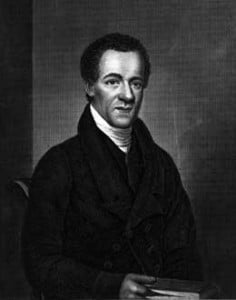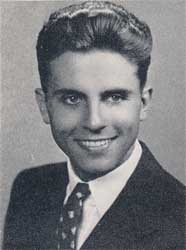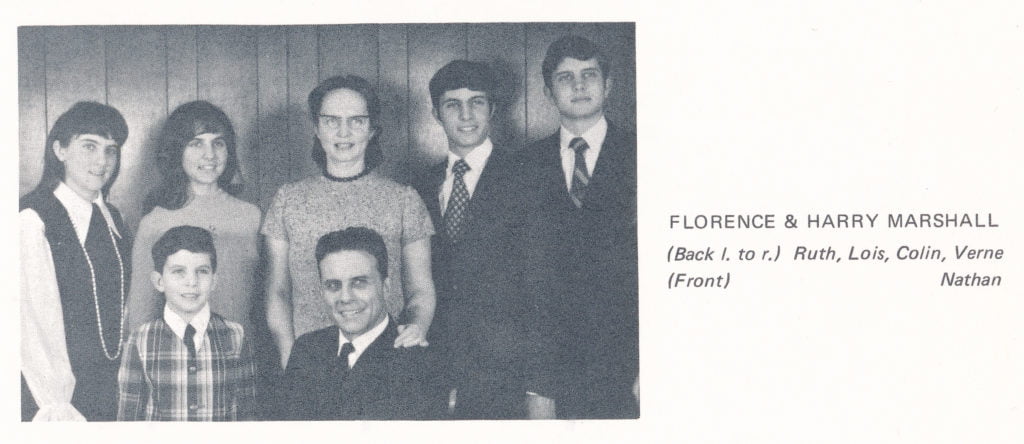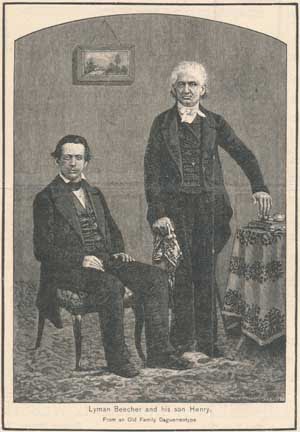STUDIES IN THE WESTMINSTER SHORTER CATECHISM
by Rev. Leonard T. Van Horn
Q. 47. —What is forbidden in the first commandment?
A. — The first commandment forbiddeth the denying, or not worshipping and glorifying, the true God, as God, and our God; and the giving the worship and glory to any other, which is due to Him alone.
Scripture References: Ps. 14:1; Rom. 1:20-21; Ps. 81:11; Rom. 1:25.
Questions:
1. What are the two sins forbidden in the first commandment?
The two sins forbidden are atheism and idolatry.
2. What is atheism?
In its strictest definition, atheism means the denial of the existence of any god of any kind. Paul uses it in Ephesians 2:12 to refer to people who are without God before their conversion.
3. Is there such a person as a true atheist?
It is difficult to come to a conclusion regarding this. It would seem difficult to believe that such exists as one wonders how any man could consistently and persistently throughout his life never have the least fear of God or doubt that there is no God.
4. Is it possible for a Christian to practice atheism?
It is not possible for a Christian to practice atheism in its strictest definition but there is a practical type that a Christian is guilty of practical atheism when he slights or neglects God, even when he knows God through Christ.
5. What is idolatry?
Idolatry in its strictest sense is the religious worship of idols. that is images or pictures. In its wider sense, it is all religious worship other than that offered to the true God.
6. How many ways can a person be guilty of idolatry?
A person can be guilty of idolatry by (1) Having and worshipping other gods beside the one true God in an outward way such as when he worships heathen gods, or angels or saints, or when he seeks to worship God through visible representations. (2) Giving honor and respect to anything in the world that is only due God in an inward way. This would be heart idolatry and would be in opposition to Matt. 16:24-“Then said Jesus unto his disciples, If any man will come after me, let him deny himself.”
DENY HIMSELF AND TAKE UP HIS CROSS
Whenever we consider the first commandment as born again Christians we should immediately recognize the connection between keeping the first commandment and the teaching of our Lord in Matt. 16:24-“Then said Jesus unto his disciples, If any man come after me, let him deny himself, and take up his cross, and follow me.” There is an important connection between the commandment and this command of our Lord. It is important for us to have before us at all times the New Testament teaching of the cross of Christ for the Christian. It is strange and hard to understand how we can stand in our churches and sing:
“Jesus, keep me near the cross;
There a precious fountain,
Free to all, a healing stream,
Flows from Calvary’s mountain.”
and not understand that we are singing it as Christians and that it has a message for us. When Paul said, “I am crucified with Christ” he was not simply stating a cliche that would win popularity among the Christians. He was stating a very vital principle, one that will keep us from breaking the first commandment and enable us to live a life of victory. He was trying to tell us in that passage, and many other passages likened to it, that there is a doctrine of the Christian’s identification with the Cross of Christ. The sixth chapter of Romans is filled with this doctrine and yet we seem to bypass it time and time again. Some bypass it because they don’t want to be labeled as those involved with the “deeper life” movement. Some bypass it because they have never noticed it. More bypass it because they know it will interfere with what they want to do, when. they want to do it!
Barnhouse put it so well, “We have seen that God looks upon us as having died with Christ, and this fact makes possible the triumph of the Christian life.” Again, “The real crucifixion of our old man can be done to us only by the Lord Himself, and He will do it if we submit to Him.” The matter of denying ourselves and taking up our cross (submitting to Him in all areas of our life) is an important aspect of claiming the Victory already won for us on the Cross of Calvary. However, many of God’s children never realize the victory was won nor how to claim it nor that they can claim it. And then they fall prey to breaking the first commandment by putting self on the throne and giving to other things the esteem and affection that God alone ought to possess. (Luke 14:26). May God help us, all to His glory, to be willing to be crucified with Christ, that self may be dethroned in our lives moment by moment.
Published By: The SHIELD and SWORD, INC.
Vol. 4 No. 45 (September 1964)
Rev. Leonard T. Van Horn, Editor

 The nation’s first Presbyterian church, organized specifically for African Americans, was located in Philadelphia and it was organized in 1807. But it was on this day, January 13th, in 1822, that what was sometimes labled the First Colored Presbyterian Church of New York City, or officially the New Demeter Street Presbyterian Church, was organized, with an initial congregation of twenty four members. The Rev. Samuel E. Cornish served as the organizing pastor, though despite his earnest efforts, the congregation’s early years were fraught with setbacks. First they lost their building, that had been built at a cost of $14,000, and then they lost their pastor in 1828, due to his declining health.
The nation’s first Presbyterian church, organized specifically for African Americans, was located in Philadelphia and it was organized in 1807. But it was on this day, January 13th, in 1822, that what was sometimes labled the First Colored Presbyterian Church of New York City, or officially the New Demeter Street Presbyterian Church, was organized, with an initial congregation of twenty four members. The Rev. Samuel E. Cornish served as the organizing pastor, though despite his earnest efforts, the congregation’s early years were fraught with setbacks. First they lost their building, that had been built at a cost of $14,000, and then they lost their pastor in 1828, due to his declining health. The next man called by the congregation in 1829 was the Rev. Theodore S. Wright (pictured at right), trained in part at Princeton Seminary and licensed to preach by the Presbytery of Albany. Under his leadership the congregation was able to obtain the former German Lutheran church at Frankfort and William Streets and from that time forward, until Rev. Wright’s death in 1847, the congregation prospered.
The next man called by the congregation in 1829 was the Rev. Theodore S. Wright (pictured at right), trained in part at Princeton Seminary and licensed to preach by the Presbytery of Albany. Under his leadership the congregation was able to obtain the former German Lutheran church at Frankfort and William Streets and from that time forward, until Rev. Wright’s death in 1847, the congregation prospered.

